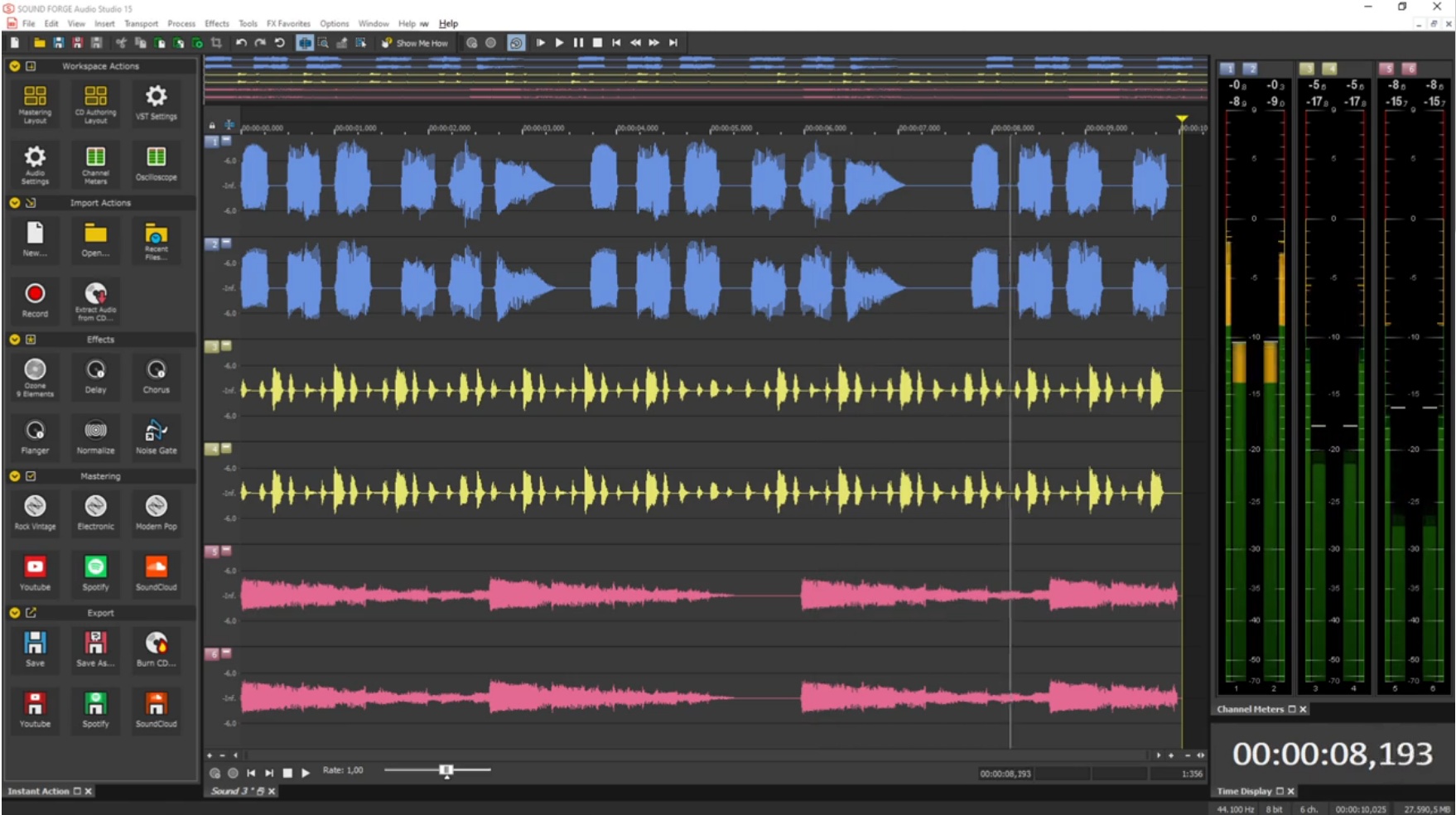

- #Sound forge pro 10 vs adobe audition software
- #Sound forge pro 10 vs adobe audition plus
- #Sound forge pro 10 vs adobe audition professional
I have done a few, but I do them into my Tascam DR-07 Mk11 which is a redbook flash recorder that records on SDHC cards. I don't due many needled drops as they are too time consuming and I can listen to vinyl on any of my 3 turntables anytime I want. Personally - I wouldn't even attempt a needle drop without a pro level editor since there is so much more that I want from my drops than just running it thru ClickRepair. Like any venture, hobby or project - tools are a part of game and each of us has their required level of "goodness" when processing a vinyl transfer.
#Sound forge pro 10 vs adobe audition plus
I use a series of tools including Wavelab 7/8 Professional, iZotope RX plus several thousand dollars worth of A/D, turntables, carts and phone stages - and I wouldn't be without any of it - since I am after the very best quality that I can muster out of these tools.

#Sound forge pro 10 vs adobe audition professional
If on the other hand - you desire a more professional result and are willing to invest the time and money into that goal - then these tools you mention are more than worth the cost. If you goal is to simply record your vinyl into Vinyl Studio and then hit it with a pass thru ClickRepair - and you enjoy that result - then of course you should not bother with investing in pro level tools. What would I be missing if I went down this route?Ĭlick to expand.A better way to look at this is to ask yourself what you really want out of your end result. My present plan is to use the simple and cheap Vinyl Studio to transfer the digital output from the A-D converter to the hard drive, and also to chop up and tag the audio files, and to use Click Repair to do the clean-up. I’m prepared to invest in Audition or Sound Forge or Reaper if I can see an advantage to it but at the moment I just can’t. This seems to me a non-critical step that can be performed by many simple, cheap programs and there is no advantage to be gained by using Audition or any of the other big programs, which probably can’t perform this task in any case. The fourth step is chopping up the audio file into separate tracks and tagging it. However, from what I’ve read on this forum, many people feel the best results are obtained from a specialised program such as Click Repair so it seems there is no advantage to be gained from using a more expensive or complex program. This seems to me a critical step where quality really matters so you want good software. The third step is cleaning up the audio file. There are programs such as Vinyl Studio that are far more user-friendly to needledroppers than big, complex programs such as Audition. Generally speaking, all audio engines are bit perfect and there is no advantage to be gained by investing heavily in this stage of the process or preferring one program over another EXCEPT in terms of ease of use and personal preference.

This seems to me a very simple task that can be performed by any audio engine. The second step is transferring the digital output to the hard drive. This seems to me a critical step where quality really matters and where it’s worth investing in good quality hardware. The first is converting the analogue signal to digital and this is done by the A-D converter (sound card).
#Sound forge pro 10 vs adobe audition software
If you wish, you can then use other simple software programs such as Click Repair to clean up the audio ready for archiving.įrom what I’ve learned so far, there are several steps involved in vinyl ripping. Surely all you need is an extremely simple audio engine that will transfer the digits coming out of the A-D converter to your hard drive. It seems to me that these programs – none of which I’ve used, so I can’t know for sure – are aimed at professional audio engineers and the like and are really unsuitable for vinyl ripping, being wildly over-specified and hugely complex, not to say extremely expensive in some cases.

What I don’t understand, and I'm hoping you can help me here, is why folks use Adobe Audition or Sony Sound Forge or Cockos Reaper or even Audacity for the very simple task of recording the digital file coming out of the A-D converter (sound card) to an audio file. I’m about to try my first vinyl rips (needledrops) so I’ve been investigating possible techniques.


 0 kommentar(er)
0 kommentar(er)
